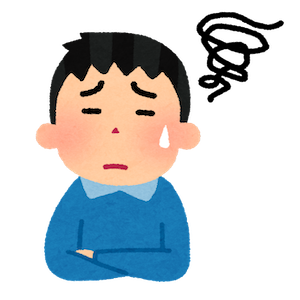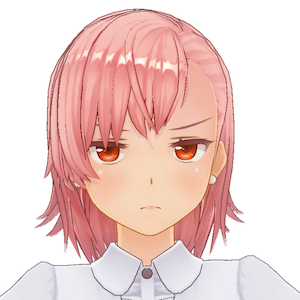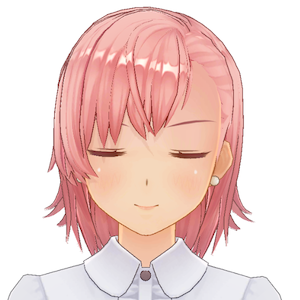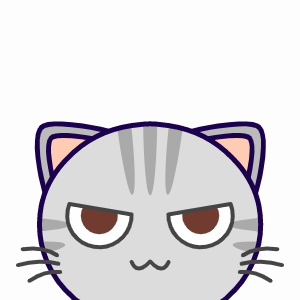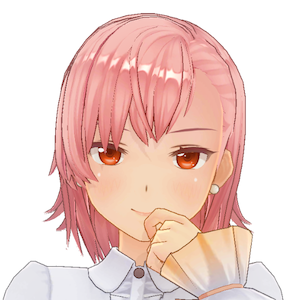英語で一日を追ってみよう、その1
My Day 〜morning〜
朝に見かける単語
clock「時計」
alarm clock「目覚まし時計」
bed「ベッド」
bedding「寝具類」
comforter「掛け布団」
blanket「毛布」
mattress「敷布団」
curtain「カーテン」
pajamas「パジャマ」
towel「タオル」
faucet「蛇口」
bathroom sink「洗面台」
toiletries「洗面道具」
makeup base「化粧下地」
sun block(sunscreen lotion)「日焼け止めクリーム」
blush「頬紅」
powder「パウダー」
glasses「眼鏡」
contact lenses「コンタクト」
breakfast「朝ごはん」
coffee cup「コーヒーカップ」
lunch box「お弁当箱」
clothes「服」
uniform「制服」
jersey, jogging suit「ジャージ」
pantyhose「パンスト」
necktie「ネクタイ」
shoes「靴」
socks「靴下」
eyebrow pencil「アイブローペンシル」
leftovers「残り物」
umbrella「傘」
folding umbrella「折り畳み傘」
all-weather umbrella「雨晴兼用傘」
朝に使う英語表現
目が覚める
I wake up.
wake upは「目が覚める」という状態、
「(体を起こして)起きる」という動作ならget up。
「子どもを起こす」はwake my child up。
目覚ましを止める
I turn off the alarm clock.
二度寝する
I fall back to sleep again.
「寝過ごす、寝坊する」はoversleep、またはwake up lateとも言う。
布団から出る
I get out of bed.
エアコン(暖房)をつける
I turn on the air conditioner.
I turn on the heater.
カーテン(窓/雨戸)を開ける(閉める)
I open(close) the curtains(window/shutter).
布団を畳んで押し入れにしまう
I fold up the bedding and put it in the closet.
beddingは「寝具類」全体を指す。
「掛け布団」はcomforter、「毛布」はblanket、「敷き布団」はmattress。
・futonは英語では通常和式の「敷き布団」を指す。
ベッドを整える
I make the bed.
パジャマを脱ぐ(たたむ)
I take off(fold) my pajamas.
パジャマはpyajamaのつづりもある。
普通は上下で一揃えなのでpajamasと複数で使う。
「パジャマの上(下)」ならa pajama top(bottom)。
階段を上る(下りる)
I go up(down) the stairs.
トイレに行く
I go to the bathroom.
bathroomは「浴室」「トイレ」両方を指す。
go to the bathrooomで「トイレに行く」という意味になる。
トイレの水を流す
I flush the toilet.
flushは「〜を水で勢いよく流す」。
水道の蛇口を開ける(閉める)
I turn the faucet on(off).
水道の「蛇口」はtapとも言う。
蛇口を「開ける(閉める)」はturn on(off)を使う。
「水を出す(止める)」はturn on(off) the water、
「蛇口をひねる」はrun a faucet。
手を洗う
I wash my hands.
「手を洗う」場合、通常両手なのでhandsと複数形になる。
手を拭く
I dry my hands.
「顔をタオルで拭く」はdry/wipe my face with a towel。
顔を洗う
I wash my face.
歯を磨く
I brush my teeth.
フロスをする
I floss my teeth.
「フロス」はfloss、「マウスウォッシュ」はmouthwash/dental rinse。
口をすすぐ
I rinse out my mouth.
「うがいをする」はgargle。
洗面台の取り合いをする
I fight over using the bathroom sink first.
fight over 〜は「〜のことで争う」。
「鏡付き洗面台」はbathroom vanity、「洗面道具」は複数形でtoiletriesと言う。
髭を剃る
I shave.
鼻をかむ
I blow my nose.
化粧する
I put on makeup.
「日焼け止めクリーム」sun block/sunscreen lotion、
「パウダー」powder、「チーク」blush、「口紅」lipstickなどをつける場合もすべて、
put on 〜が使える。
寝癖をなおす
I smooth down my bedhead.
I smooth down my messy hair.
messyは髪が「ボサボサになっている」状態。
「寝癖頭」はbedhead。
髪をセットする
I do my hair.
「髪をセットする」はfix my hairdoでも良い。
「髪をとかす」はblush/comb my hair、
「ブローして乾かす」はblow-dry my hairと言う。
予定に合わせて服を選ぶ
I choose my clothes according to my schedule.
「予定に合わせて」はbased on my plansと言うこともできる。
着替える
I get dressed.
「スーツに着替える」はchange into a suit、
「仕事に行くために着替える」はchange for work。
シャツを着る(ズボン/スカートを履く)
I put on my shirt(pants/skirt).
身につけるもの、例えばhat「帽子」、shoes「靴」、glasses「眼鏡」、
contact lenses「コンタクト」、watch「時計」などもすべてput on 〜でOK。
新聞を取りに行く
I go get the newspaper.
go getで「〜を取りに行く」。
台所に行く
I go to the kichen.
お湯を沸かす
I boil some water.
コーヒーを入れる
I make coffee.
「コーヒーを入れる」はbrew coffeeとも言う。
「カップに注ぐ」はpour some coffee into a/the cup.
トースターでパンを焼く
I make toast.
「パンをトーストする」はtoast some breadでも良い。
冷蔵庫から牛乳を取り出す
I get the milk out of the refrigerator/fridge.
朝ごはんを作る
I make breakfast.
「お弁当を作る」はprepare a lunch box。
朝ごはんを食べる
I eat breakfast.
I have breakfast.
子どもたちの世話をする
I take care of my child(children).
「子どもたちに服を着せる」はdress my child、
「赤ちゃんにご飯を食べさせる」はfeed my baby。
テレビ(ラジオ)をつける
I turn on the TV(radio).
「テレビ(ラジオ)を消す」はturn off the TV(radio)。
毎朝ニュースを見る(チェックする)
I watch the news every morning.
I check the news every morning.
占いをテレビ(スマホ)でチェックする
I check my fortune on TV(my smartphone).
fortuneは「運勢」。「占い」はfortune-telling。
「天気予報をチェックする」はcheck the weather report。
「交通情報をチェックする」ならcheck the traffic report。
ラジオの語学講座を聞く
I listen to a foreign language course on the radio.
朝の連続ドラマを見る
I watch a morning drama series.
「連続ドラマ」はserial dramaとも言う。
テレビ番組の録画予約をする
I set the (video) recording timer for a TV show.
猫(犬)に餌をやる
I feed the cat(dog).
feedは「(動物)に餌を与える、(子ども)に食事を与える」という意味。
「餌」はfood。
犬の散歩に行く
I take my dog for a walk.
take 〜 for a walkは「〜を散歩に連れて行く」。
戸締まりしたか確認する
I check the lock.
make sure the doors is lockedと言っても良い。
家の鍵を掛ける
I lock the house.
lockは動詞でも使える。
駅まで自転車で行く
I go to the station by bicycle.
「歩いて行く」ならwalk to the station。
駅まで子ども(夫)を車で送る
I give my child(husband) a ride to the station.
「(人を)〜まで車で送る」はdrive (人) to 〜とも言う。
「歩いて送る」場合はwalk (人) to 〜となる。
「(人を)見送る」はsee (人) off。
会社に行く
I go to work.
朝、頭に浮かぶこと
目覚ましをかけ忘れた!
I forgot to set my alarm clock!
あっ、寝過ごしてしまった!遅刻だ!
Oh,I slept too late! I’m gonna be late!
目覚まし5個もかけたのに。
I set five alarm clocks,but it didn’t work.
set an alarm clock「目覚まし時計をかける」
not work「うまくいかない」
目覚ましをかけた「けど無駄だった」ならbut it was useless。
あ〜、よかった!寝過ごすところだった!
Thank goodness! I almost overslept.
Thank goodness!「ありがたい、助かった」
almost「もう少しで〜しそうになった」
overslept(oversleep)「寝過ごす」
goodnessはGod「神」の婉曲表現。Thank God!とも言えるが、Godはむやみに使わない方が良い。
あと5分だけ、寝よう。
I’ll sleep for just five more minutes.
sleep for 〜 minutes(hours)「〜分(時間)眠る」
just「〜だけ」
ここで二度寝したら、きっとアウトだな・・・。
If I go back to sleep now,I won’t be able to wake up on time…
go/fall back to sleep「二度寝する」
on time「時間通りに」
cf.in time「間に合って」
今また寝たら、起きられないだろう。
If I went back to sleep now,I wouldn’t be able to wake up.
と表すこともできる。
あー!いいところで目が覚めちゃった。
Oh! I was having such a wonderful dream when I woke up!
have/dream a dream「夢を見る」
cf.have a bad(strange) dream「悪い(奇妙な)夢を見る」
wake upは「目が覚める」、
そのとき「夢を見ているところだった」ので、I was having a dreamと進行形が使われている。
昨夜は眠りが浅かったな。
I couldn’t sleep well last night.
sleep well(get enough sleep)「ぐっすり眠る」
deep sleep「熟睡」
熟睡はsound/good sleepとも言える。
昨夜はなかなか寝付けなかった。
It took me a long time to fall asleep last night.
it took me a long time to 〜「〜に時間がかかった」
昨夜は寝苦しかったなぁ。
I had a restless night.
最近、前日のお酒が翌日に響くようになったな。
I seem to get a hangover easily these days.
seem to 〜「〜のようだ」
get a hangover「二日酔いになる」
easily「容易に」
二日酔いがひどいなあ。
I have a terrible hangover.
だんだん朝起きるのが辛くなってきた。
It’s getting harder to get out of bed in the morning.
It gets hard to 〜「〜するのが難しくなる」
get out of bed「ベッドから出る」
get out of bedの代わりにget up「起きる」でも良い。
理由を言うのなら、because it’s getting colder「寒くなってきたので」などを付け加える。
まず顔を洗ってきなさい。
Go wash your face first.
「まず手を洗ってきなさい」なら、
Go wash your hands first.
会話ではgo seeやgo eatのように2つの動詞が連続することが頻繁にある。
もともとはgo and seeのようにandが入っていて、それが省略された形。
ストレッチでもして、体を起こそうか。
Maybe I’ll stretch a little to wake myself up.
Maybe「〜するといいかも、〜かもしれない」
wake myself up「目を覚ます」
ここでのstretchは動詞「ストレッチする」だが、do some stretchesのように名詞としても使える。
「(頭の上に)手をあげて伸びをする」ならstretch my arms(above my head)。
朝方だから早起きは平気。
I’m a morning person. I like to get up early.
a morning person「朝型人間、早起きの人」
「早起きが得意ではない、寝起きが悪い」はI’m not much of a morning person.。
反対に「夜型」ならI’m a night person/owl.
う、喉がいがらっぽい。風邪ひいたかな。
Ugh,my throat feels sore. I think I’ve caught a cold.
Ugh「う〜、うわあ」
sore「痛い、ヒリヒリする」
cf.I have a sore throat.「喉が痛い」
caught a cold(catch a cold)「風邪をひく」
My throat feels itchy.「のどがちくちくする。」
くしゃみが止まらない!
I can’t stop sneezing!
sneeze「くしゃみ」
鼻水が止まりません。
I have a runny nose.
runny「流れやすい、粘性が低い、鼻水が出る」
鼻が詰まって息苦しい。
I have a stuffy nose so it’s hard to breathe.
今の時期、空気が乾燥しているからなあ。
The air is dry at this time of the year.
the air「空気」
at this time of the year「1年のこの時期」
「空気がじめじめしている」The air is damp.
「湿気が多い」It’s humid.
「静電気でびりっときた」I got zapped by static electricity.
もう起きる時間だよ!
It’s time to wake up!
It’s time to 〜「〜する時間だ」
It’s time for breakfast.「朝ご飯の時間ですよ。」
もう10分早起きしてくれると助かるんだけどなあ。
I’d be really happy if you’d get up 10 minutes earlier.
I’d beはI would beの省略形。
you’d getはyou would getの省略形。
I wouldの後の動詞は原形になり、I hadの後は過去分詞になる。I couldはI’dと略さない。
どうして起こしてくれなかったの?
Why didn’t you wake me up?
遅刻しても私のせいじゃないから。
Don’t blame me if you are late.
blame「〜のせいにする」
今朝は肌寒いなあ。
It’s chilly this morning.
chilly「肌寒い、ひんやりした」
天気や気温はIt’s 〜で表す。
It’s cold.「寒い」
It’s freezing.「凍えそうに寒い」
It’s hot and humid.「蒸し暑い」
台所に行くと、母が朝食を作ってた。
When I went to the kitchen,my mother was making breakfast.
朝ごはんもう食べた?
Have you had breakfast yet?
この場合のyetは「もう、すでに」
朝食は毎日取るようにしてるよ。
I try to eat breakfast every morning.
try to 〜「〜しようとしている(頑張っている)」
朝ごはんは抜いちゃうんだよね。
I often skip my breakfast.
朝食はサンドウィッチを食べたよ。
I ate a sandwich for breakfast.
朝は果物とヨーグルトを食べました。
I ate fruits and yogurt for breakfast.
今朝は寝坊をしてしまって食べる時間がなかったのよ。
This morning I got up too late to have breakfast.
too 〜 to …「〜すぎて…できない」
私は毎朝7時のニュースを見ます。
I watch the 7 o’clock news every morning.
着ていく服が決まらん!
I can’t decide what to wear!
decide「決める」
what to 〜「何を〜べきか」
「明日着ていく服を選ぶ」pick out my clothes for tomorrow
「他に着る服がない」I can’t find anything else to wear.
今の時期、寒暖の差が激しいから着るものに困る。
I don’t know what I should wear because the temperature goes up and down these days.
what I should wear「何を着ていこうか」
go up and down「上がったり下がったりする」
「天気が不安定だ」The weather is unsettled.
「気温差に体がついていかない」It’s difficult to adapt to the sudden change in temperature.
この前買った服、おろしちゃおうかな。
Maybe I will wear these brand-new clothes that I bought the other day.
brand-new「新品」
bought(buy)「買う」
the other day「先日、この前」
「この真新しいワンピース(スーツ/ジャケット/ブラウス)」
this brand-new dress(suit/jacket/blouse)のように具体的に言っても良い。
新しい服を着るとテンションが上がるんだよね。
Wearing new clothes gives me a lift.
give 〜 a lift「気分を上げる、元気づける」
「テンション」をtensionと言うと「緊張」という意味なので通じない。
「テンションが上がる(下がる)」はfeel excited and cheerful(down and depressed)、
「ハイテンションになる」become hyperのように言う。
「新しいシャツを着るとテンションが上がる」I feel so good when I put on a new shirt.
今日はクライアントと打ち合わせがあるから、いつもよりきちんとした服で行かないと。
I have a meeting with the clients today,so I have to dress up a little more than usual.
client「顧客、クライアント」
dress up「きちんとした格好をする」
I must dress properly.「相応しい格好をしなくては」
wear a suit and tie「スーツとネクタイを着用する」
「おしゃれをする」get all dressed up
「ラフな格好をする」dress casually
今日のコーディネートはすごくいい感じ!
I love my outfit combination today!
outfit「(ひとそろいの)衣服」
combination「組み合わせ」
英語のcoordinate「色やデザインの調和」を使うとやや硬い表現になる。
服のコーデにすごく時間がかかったわ。
It took me a long time to pick out the outfit.
今朝はヘアスタイルが決まらない。
My hair doesn’t look very nice today.
my hair「私の髪」
look nice/good「いい感じに見える」
「ヘアスタイルをなおす」do/fix my hair
good hair day「髪型が決まる日」「何もかもうまく行く日」
焦って履いたらストッキングが伝染しちゃったよ。
I put on my pantyhose in a hurry and made a run in them.
pantyhose/hose「パンスト(複数扱い)」
in a hurry「急いで」
run「伝染」
ストッキングstockingsは「ひざ下まである長い靴下」のことなので、ここではpantyhoseを使う方が良い。
イギリスではtightsとも言う。
ストッキングが伝染してる!
I’ve got a run in my pantyhose!
ネクタイがうまく結べない。
I can’t tie my necktie neatly.
tie「〜を結ぶ」
necktie「ネクタイ」
neatly「きちんと」
cf.nicely「うまく、ちゃんと」
ネクタイの色々
「ネクタイを締める」put on a tie
「ネクタイを真っ直ぐにする」straighten my tie
「ネクタイを緩める」loosen up my tie
「ネクタイを外す」take off my tie
今朝はメイクのノリがいいわあ。
The makeup is going on my face really well this morning.
makeup「化粧、メーキャップ」
go「おさまる、乗る」
反対に「メイクのノリが悪い」なら
My makeup just doesn’t stay on.
化粧の色々
「化粧する」put on makeup
「化粧を直す」fix my makeup
「薄化粧である」wear a touch of makeup、wear light makeup
「厚化粧である」wear heavy makeup
あー、今日は眉毛が上手く描けない!
Gee,I just can’t get this eyebrow pencil right today!
get 〜 right「〜をちゃんとする」
eyebrow「眉毛」
eyebrow pencil「アイブローペンシル、ペンシル型眉ずみ」
cf.eyelashes「まつげ」
「眉毛を描く」はpencilを動詞にしてpencil in my eyebrowsとも言う。
「アイブローペンシルを使う」use an eyebrow pencil
「つけまつげをする」put on fake(false) eyelashes
コンタクトがなかなか入らない。
I’m having trouble putting in my contact lenses.
have trouble 〜ing「〜するのに苦労する」
contact lens「コンタクトレンズ(複数でlenses。省略してcontactとも言う)」
コンタクトの色々
「コンタクトをはめる(外す)」put on(put out) my contact lenses
「コンタクトをつけている」wear contacts(contact lenses)
水が冷たく(ぬるく)なった。
The water has gotten cold(warm).
gotten cold(get cold)「冷たくなる」
has gotten coldは完了形で「水が冷たくなった」状態を表す。
だんだん冷たく(ぬるく)なってきた。
The water is getting cold(warm).
空気が冷たく(暖かく)なってきた。
The air is getting cold(warm).
朝食は昨日の残り物でいいや。
I’ll just have yesterday’s leftovers for breakfast.
leftovers「残り物(通常複数)」
have 〜 for breakfast「〜を朝食に食べる」
残り物色々
「残り物を温める(レンジで温める)」heat(microwave) the leftovers
「残り物を冷蔵庫にしまう」put the leftovers in the refrigerator
「残り物で何か作る」make something with the leftovers
夜遅くまでゲームしていたから、今朝は目の下にくまができている。
I stayed up late playing games so I have dark circles under my eyes this morning.
stay up late「遅くまで起きている」
dark circles under my eyes「目の下のくま(通常複数)」
circlesの代わりにringsやshadowsとも言う。
「目の下のたるみ」bags under my eyes
「睡眠不足(で)」の場合は(from) lack of sleep。
目の下のくまをなんとかしなきゃやばい!
I must get rid of the dark circles under my eyes!
get rid of 〜「〜を取り除く」
仕事と子どもの保育園の準備で朝からバタバタ。
I’m so busy in the morning preparing for my work and for my kid’s day care.
prepare for 〜「〜の(ための)準備をする」
day care「託児所、保育園」
cf.day care center,nursery school,preshcool
「幼稚園」kindergarten
「子どもを保育園に連れて行く」take my kid to day care
「子供を保育園に送っていく(迎えに行く)」drop off (pick up) my kid at day care
電車が遅延しているみたいだ。早めに家を出ないとな。
Look like the trains are delayed. I should leave home earlier than usual.
looks like 〜「〜のようである」
delay「〜を遅らせる」
leave home「家を出る、出かける」
than usual「いつもより、普通より」
Looks like 〜はIt looks like 〜の主語Itが省略されていて会話ではよく使われる。
朝はノリのいい音楽でも聞いて気分上げてかなきゃね。
I need to listen to upbeat music to get me going in the morning.
need to 〜「〜する必要がある、〜しなくてはならない」
upbeat「テンポの良い、陽気な」
get 〜 going「〜を動かす、活動させる」
音楽はmusicの代わりに「曲」を意味するnumber(s)、tune(s)などでも良い。
put on my favorite number「好きな曲をかける」
start my day with my favorite songs「1日を好きな歌で始める」
うわ、あやしい空模様だなあ。一応、折り畳み傘持ってくか。
Oh,I don’t like the look of the sky. I’ll bring my folding umbrella just in case.
the looke of 〜「〜の様子、見た目」
bring「〜を持っていく」
folding umbrella「折り畳み傘」
cf.fold「折り畳む」
just in case「念のため、万が一に備えて」
「傘を持って行くのを忘れないでね」Don’t forget to take an umbrella with you!
「晴雨兼用傘」all-weather umbrella
「日傘」parasol
今日は猛暑日になるらしい。
It’s going to be an extremely hot day.
extremely「非常に」
「真夏日」a hot(summer) day
「記録的な猛暑」a record-breaking hot day
「連日の真夏日」heat wave
「熱帯夜」a hot summer/muggy/sweltering night
「昨日は熱帯夜だった」It was very hot/muggy last night.
台風が来ているから、今日は早く帰ろう。
A typhoon is coming. Let’s go home early today.
typhoon「台風、暴風」
cf.発生場所が太平洋のものをtyphoon、
大西洋の場合はhurricane、
インド洋ならcycloneとよぶ。
「嵐、暴風雨」storm
「大型台風」a big/powerful typhoon
「台風警報」typhoon alert/warning
「台風は北(東)に向かっている」The typhoon is moving north(east).
「台風が今夜にはこの辺に来るでしょう」The typhoon will hit this area tonight.
結構降ってるなあ。今日は防水シューズにしよう。
It’s raining pretty hard. I’ll wear waterproof shoes today.
pretty「とても、すごく」
waterproof「防水の」
cf.語にproofをつけると「〜に耐えられる、通さない」となる。
soundproof「防音の」
heatproof「耐熱の」
prettyは会話でよく使われ、veryと同じ意味。
「豪雨」heavy rain/downpour
「集中豪雨」torrential rain
家を出るときは鍵をかけてね。
Please lock the door when you leave home.
look the keyとは言わない。鍵を掛ける対象はドア。
「走る前に、歩くことを学びなさい。」

